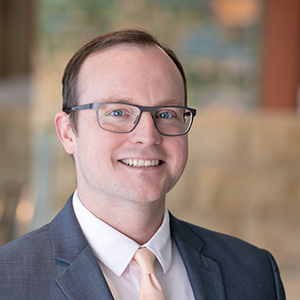Few things are more essential to understanding how the world works than a basic familiarity with economic forces. But journalists, whose job it is to interpret and explain the world to the general public, often lack training in the fundamentals of economic concepts and theory.
To remedy that deficit, 25 reporters from around the country attended the Supply, Demand and Deadlines workshop on economics for journalists held mid-June in Minneapolis. Over three days, they heard presentations by economists and seasoned financial writers. They then applied what they learned in a case study about a fictitious international economic crisis, the "meltdown" of China's banking system. It was an innovative exercise, with positive results.
This was the fourth SD&D conference since 2000, sponsored by the Minnesota Journalism Center, School of Journalism and Mass Communication, at the University of Minnesota and the Federal Reserve Bank of Minneapolis.
Although the conference was originally intended for reporters in the Upper Midwest, it has attracted journalists from around the world. This year's participants were a diverse group, with varying degrees of knowledge and experience. They included writers from Dow Jones Newswires, the Associated Press, Reuters, Bloomberg News, The San Francisco Business Times and the Caribbean Media Corp., among others.
Getting the basics
The first evening of the conference was a reception primarily designed as a time for participants to get to know each other. But workshop organizers managed to slip in some education too. Minneapolis Fed President Gary Stern gave an opening address after dinner to introduce journalists to an economist's way of thinking. Stern's talk contrasted conventional wisdom with economic thought on a number of topics, including trade, inflation, growth and economic policy.
On the second day of the conference, V.V. Chari, University of Minnesota economics professor and adviser to the Minneapolis Fed, gave a talk called "Economic Lessons for the Real World," continuing the conference's tradition of bringing in a prominent economist to explain some fundamentals of the discipline. Chari's presentation boiled down to eight concepts that he wanted the audience to remember after the workshop.
Four Analytical Takeaways:
- Every social problem involves trade-offs.
- Focus on incentives.
- Opportunity cost matters, not accounting cost.
- Use supply and demand as a diagnostic tool.
Four Policy Takeaways:
- Markets are good except in clearly identifiable circumstances.
- The cost of business cycles is overstated.
- "Inflation is always and everywhere a monetary phenomenon"
(M. Friedman). - A country's standard of living depends on institutions.
Chari said that while not every economist would agree wholeheartedly with each of these statements, the business cycle comment in particular, there's wide consensus on almost all of them.
At lunch time, economist Thomas Sowell, a prolific author and fellow at the Hoover Institution, gave the keynote address, "Popular Fallacies in Economics and Statistics," via teleconference, addressing how journalists often misinterpret and misuse statistical data, particularly in their reporting on economics. (See a recent Sowell column on the topic.)
After lunch, David Wessel, deputy Washington bureau chief of the Wall Street Journal, offered his tips for reporters. Wessel's comments were more casual than the preceding talks and focused on writing rather than economic principles. He provided many anecdotes drawn from his experience covering the economy for the Journal and offered recommendations like, "Learn some math" and "Read something in the office no one else reads."
Wessel countered other presentations by arguing that while there is value in learning to think like an economist, reporters shouldn't always do so, to avoid falling prey to "groupthink." While economists stress the need to master fundamentals before looking at special cases, Wessel said, "Life is basically a series of special cases."
Getting to work
On the last day of the conference, participants put their lessons to work. In previous SD&D workshops, journalists were given story assignments so they could translate theory to practice—a story proposal about rising health care costs, for instance, or an article about trade tariffs.
But this year, the day was filled with deadline urgency as journalists dealt with a fictional international economic emergency. It started with a mock news event: The four largest banks in China have announced that they're nearly insolvent, and China's economy is on the brink of collapse. Reporters were assigned to provide an analysis and context piece to run alongside other coverage of the "crisis."
Participants received a number of recent news pieces on China as background material, along with the false "breaking" story. They also watched a fictitious episode of "Nightline" with St. Paul Pioneer Press Co-Managing Editor Chris Worthington serving as "Ted Koppel" in a panel discussion with Chari and Art Rolnick, senior vice president and director of Research at the Minneapolis Fed.
Rolnick and Chari role-played a debate about trade with China and, most critically, whether the international community should bail out the Chinese financial system. The workshop moderators repeatedly stressed that the crisis was fictional so that wire reporters wouldn't file a story about Fed officials suggesting that a collapse of China's financial system would be good for the American economy.
Reporters then wrote their stories—with a 90-minute deadline—and submitted them to the moderators for anonymous critique. The moderators were generally impressed with the quality of the stories but highlighted some problems that reporters should avoid. The exercise got good reviews from participants, who said it was helpful to use what they had learned in a hands-on application. If the workshop has done its job, the lessons will carry over into future reporting as journalists integrate economic theory with their real-world stories.
Joe Mahon is a Minneapolis Fed regional outreach director. Joe’s primary responsibilities involve tracking several sectors of the Ninth District economy, including agriculture, manufacturing, energy, and mining.





